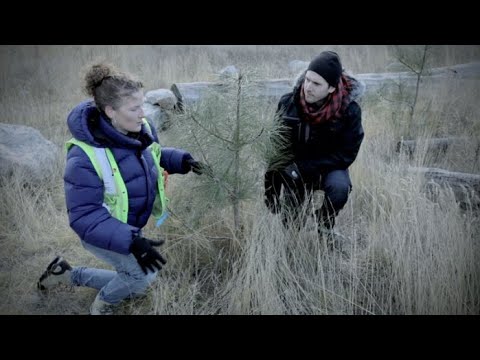Exploring Life: Biologist Job Description & Salary

Biologist Job Description Template
Biologist Job Description A biologist is a professional who studies living organisms and their interactions with their environment. They conduct research, perform experiments, and analyze data to gain a better understanding of various biological processes. Biologists can specialize in different areas such as botany, zoology, microbiology, genetics, or ecology. The responsibilities of a biologist may vary depending on their specialization, but common tasks include collecting samples, conducting fieldwork, and analyzing data using advanced scientific techniques and equipment. They often work in laboratories, research institutions, or universities, collaborating with other scientists and researchers. One important aspect of a biologist’s job is to contribute to scientific knowledge by publishing research papers and presenting findings at conferences. They also play a crucial role in developing and implementing conservation strategies to protect endangered species and ecosystems. Another crucial aspect of a biologist’s work is to educate and communicate scientific information to the public, policymakers, and other stakeholders. They may work as educators, science writers, or consultants, helping others understand complex biological concepts and their implications. In summary, a biologist is a scientist who studies living organisms, conducts research, and contributes to scientific knowledge. They play a vital role in understanding the complexities of life and its various processes, as well as in conservation and education efforts.Biologist Responsibilities
Biologist Requirements
How Much Does A Biologist Make?
Biologist Salary
| Job Title | Median Salary (USD) |
|---|---|
| Research Biologist | $75,000 |
| Wildlife Biologist | $62,290 |
| Microbiologist | $75,650 |
| Marine Biologist | $52,070 |
| Geneticist | $82,220 |
A biologist’s salary can vary depending on their specialization and level of experience. According to recent data, the median salary for a research biologist is $75,000 per year, while wildlife biologists earn a median salary of $62,290. Microbiologists have a slightly higher median salary of $75,650, while marine biologists earn around $52,070. Geneticists, on the other hand, have a higher median salary of $82,220.
Biologist Salaries by Country
Top Paying Countries for Biologist
| Country | Average Salary (USD) |
|---|---|
| United States | 80,000 |
| Switzerland | 75,000 |
| Australia | 70,000 |
| Germany | 60,000 |
| Canada | 55,000 |
Biologists in the United States earn the highest average salary, with an average of 80,000 USD per year. Switzerland follows closely behind with an average salary of 75,000 USD, making it the second highest paying country for biologists. Australia, Germany, and Canada complete the list of top paying countries for biologists with average salaries of 70,000 USD, 60,000 USD, and 55,000 USD respectively. These figures indicate the earning potential for biologists in different countries, reflecting the varying demand and compensation levels within the field across the globe.
A video on the topic Biologist
Video Source : WorkBC’s Career TrekInterview Questions for Biologist
1. What is biology?
Biology is the study of living organisms, including their structure, function, growth, evolution, distribution, and taxonomy.
2. What are the different branches of biology?
The different branches of biology include zoology (study of animals), botany (study of plants), microbiology (study of microorganisms), genetics (study of heredity), ecology (study of the environment), and molecular biology (study of biological molecules).
3. What is the scientific method in biology?
The scientific method in biology is a systematic approach used to investigate and understand natural phenomena. It involves making observations, forming a hypothesis, conducting experiments, analyzing data, and drawing conclusions.
4. How do biologists classify organisms?
Biologists classify organisms based on their similarities and differences using a hierarchical system called taxonomy. This system includes various levels such as kingdom, phylum, class, order, family, genus, and species.
5. What is the importance of biodiversity?
Biodiversity is important because it provides a variety of ecosystem services such as oxygen production, water purification, and climate regulation. It also contributes to the development of new medicines, enhances food security, and supports the overall health of ecosystems.
6. What is the difference between prokaryotic and eukaryotic cells?
Prokaryotic cells lack a nucleus and membrane-bound organelles, while eukaryotic cells have a nucleus and membrane-bound organelles. Prokaryotic cells are usually smaller and simpler in structure compared to eukaryotic cells.
7. How do organisms adapt to their environment?
Organisms adapt to their environment through natural selection, where individuals with advantageous traits are more likely to survive and reproduce. Over time, these beneficial traits become more common in the population.
8. What is the role of DNA in biology?
DNA (deoxyribonucleic acid) contains the genetic instructions necessary for the development, functioning, and reproduction of all known living organisms. It carries the hereditary information that is passed from one generation to the next.
9. What are some common laboratory techniques used in biology?
Some common laboratory techniques used in biology include microscopy (using microscopes to observe and study cells and tissues), DNA sequencing, polymerase chain reaction (PCR), gel electrophoresis, and chromatography.
10. How does biology relate to other scientific disciplines?
Biology is interconnected with other scientific disciplines such as chemistry, physics, geology, and mathematics. It relies on chemistry to understand the molecular basis of life, physics for concepts like energy and motion, geology for studying the Earth’s history and environment, and mathematics for modeling and analyzing biological phenomena.
The Best Universities For The Biologist Profession.
- Harvard University
- Stanford University
- Massachusetts Institute of Technology (MIT)
- California Institute of Technology (Caltech)
- University of Cambridge
- University of Oxford
- Princeton University
- Yale University
- Johns Hopkins University
- University of California, Berkeley
- University of Chicago
- University of California, San Francisco
- University of California, Los Angeles (UCLA)
- University of Pennsylvania
- Cornell University
- University of Washington
- University of Wisconsin-Madison
- University of California, San Diego
- University of Michigan-Ann Arbor
- University of Texas Southwestern Medical Center






